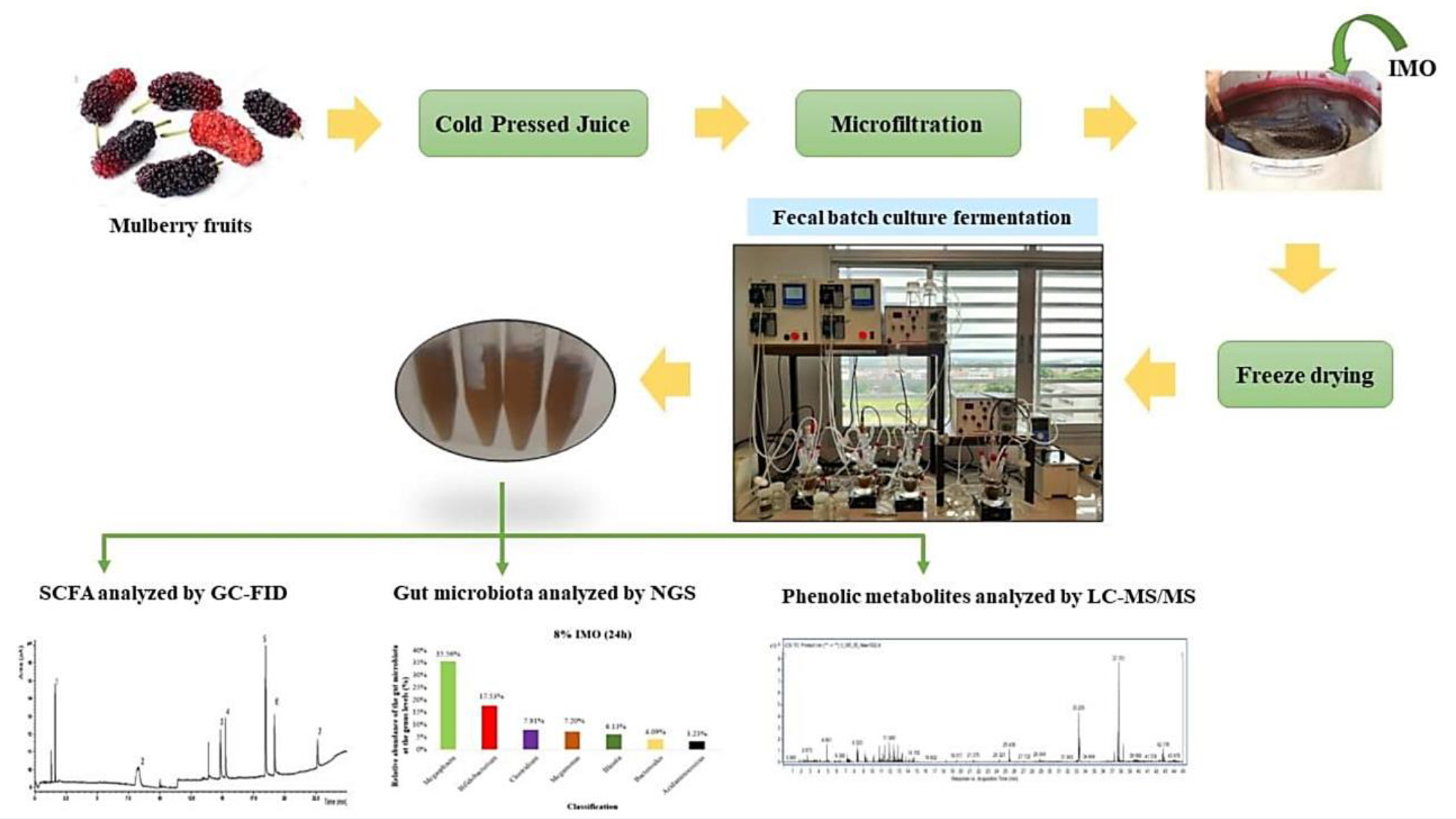Modulation of gut microbiota and their metabolites by functional mulberry juice non-thermally pasteurized using microfiltration
DOI:
https://doi.org/10.31989/ffhd.v12i9.980Abstract
Background: Mulberry fruit is a source of phenolic compounds and has biological properties. This study aimed to assess the effects of isomaltooligosaccharide (IMO) added to mulberry juice on prebiotic activity and gut fermentation properties.
Objectives: The study aimed to produce mulberry juice supplemented with IMO, which might generate short chain fatty acids (SCFA), and to examine the effects of a prebiotic activity after fecal fermentation.
Materials and methods: Functional mulberry juices were prepared with three different levels of isomaltooligosaccharide (IMO), namely 0% (MBI0), 2% (MBI2), and 8% (MBI8). The study tested mulberry juices supplemented with IMO, which generated short-chain fatty acids (SCFA), phenolic metabolites, and favored beneficial gut bacteria, and examined the prebiotic activity after fecal fermentation by the colonic microbiota. A crossflow hollow fiber microfiltration system with a 0.22 μm pore size was employed to deliver permeates considered non-thermally pasteurized juices.
Results: The results show that short chain fatty acids (SCFA) included large propionic acid and butyric acid concentrations at 48h. The percent of bifidobacteria significantly increased to 5.03% and 17.53% in 24 hours fermentation of MBI2 and MBI8, respectively. After fecal batch culture fermentation, some anthocyanin metabolites such as 3-(2-hydroxyphenyl) propionic acid, 3,4-dihydroxybenzaldehyde, L-phenylalanine, and aminocaproic acid, were detected. Therefore, IMO can serve as a potential prebiotic ingredient added in mulberry juice for promoting the growth of beneficial gut microbiota.
Conclusion: The results show that IMO favored beneficial microorganisms in the gut and contributed to biologically active compounds such as metabolites of polyphenols and anthocyanins in the gut.

Keywords: Mulberry, isomaltooligosaccharide, prebiotic, gut microbiota, metabolites
Downloads
Published
Issue
Section
License
Any manuscripts or substantial parts of it, submitted to the journal must not be under consideration by or previously published in any other journal or citable form. Authors are required to ensure that no material submitted as part of a manuscript infringes existing copyrights or the rights of a third party. In submitting one's article in any form, the author has assigned the FFC publishing rights and has agreed to an automatic transfer of the copyright to the publisher. This is so that the FFC may create print option journals, for example, at the FFC’s discretion. If the author wishes to distribute their works by means outside of the FFC, for example within their community, they will have to place a request.
Correspondence concerning articles published in Functional Foods in Health and Disease is encouraged. While derivative works (adaptations, extensions on the current work, etc.) are allowed, distribution of the modified material is not allowed without permission from the FFC.